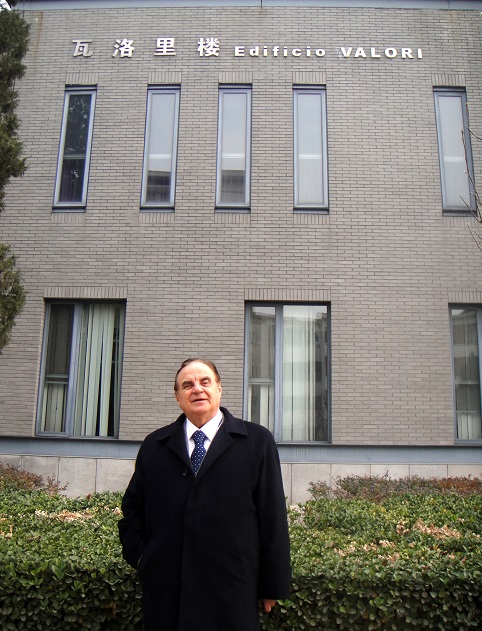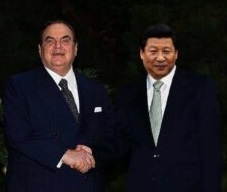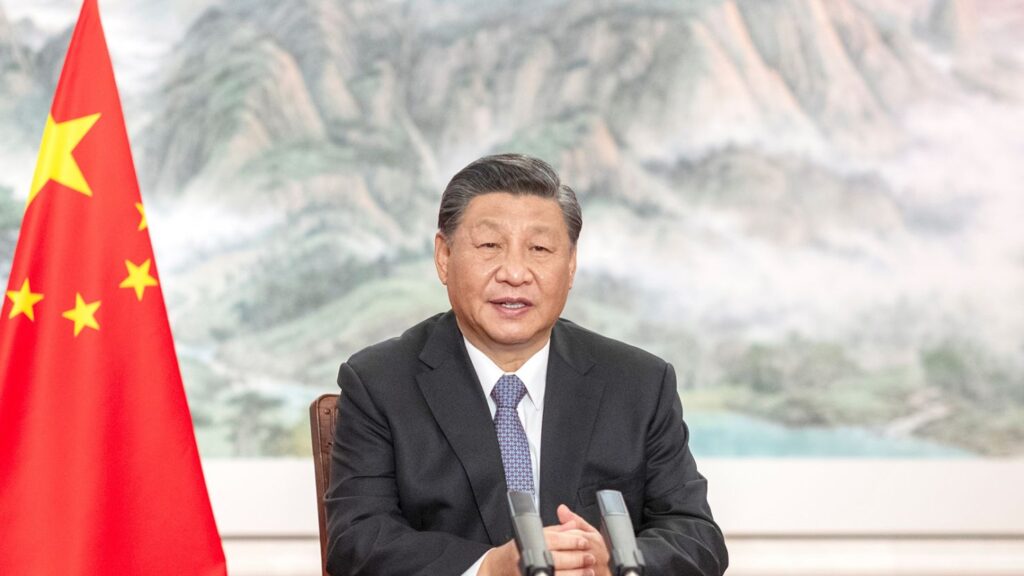By Giancarlo Elia Valori – Honorable de l’Académie des Sciences de l’Institut de France, Honorary Professor at the Peking University.
At present, the international situation is complex and serious, the recovery of the world economy is fragile and full of uncertainties, the development gap is widening, and challenges such as climate change and digital governance are becoming more pressing.

As an important mechanism for cooperation among emerging economies and developing countries, BRICS can be the key to promoting global economic growth, advancing governance reform, and maintaining international peace and stability.
The BRICS are the largest developing countries in their regions, a driving force in the global economy that can no longer be ignored, and they are equally crucial to the implementation of the United Nations 2030 Agenda for Sustainable Development.
The BRICS cooperation mechanism is based on multi polarization and economic globalization, and aims to create a new international political and economic order that is fairer, more equitable and more democratic, thus meeting the expectations of both emerging and developing countries, and going beyond the old routine of political, ideological and military alliances.
The BRICS countries have adopted an open and inclusive approach to cooperation, which is attracting more and more countries to join. On January 1 this year, Saudi Arabia, Egypt, the United Arab Emirates, Ethiopia and Iran became official members of BRICS, increasing the number of member states from five to ten. The BRICS enlargement also strengthens South-South cooperation and gives more weight and voice to developing countries.
Although the PRC is the largest economy among the BRICS, it has always supported the concept of mutual benefit, win-win and common development. The current “BRICS+” model of cooperation, which has been adopted by all member countries and has essentially launched the process of deepening and further expanding BRICS cooperation, was proposed by Chinese President Xi Jinping Il, who also stated that: “Standing at the crossroads of history, we must not only look back to the past and remember why the BRICS countries were founded, but also look forward to the future together and work together to build a more comprehensive system, a closer, pragmatic and comprehensive partnership of high quality, so as to embark together on a new journey of BRICS cooperation.”
A Community of Common Destiny for Mankind
In recent years, the building of a community of shared future for mankind, proposed by President Xi Jinping 11 years ago, has moved from concept to action and from vision to reality.
The People’s Republic of China constantly urges the international community to practice genuine multilateralism, safeguard the international system with the United Nations at its core, support the United Nations itself to play a central role in international affairs, promote the development and improvement of the global governance system, and jointly build a community of shared future for mankind.
The People’s Republic of China strongly supports the central role of the United Nations in international affairs. The reform of the United Nations should help safeguard multilateralism and the role of the United Nations, promote the expansion of the voice of developing countries in international affairs, and enhance the executive capacity and management efficiency of United Nations organizations.
China welcomed the “New Agenda for Peace” proposed by UN Secretary-General António Guterres. In addition, President Xi Jinping has proposed a comprehensive security initiative, which advocates a common, comprehensive, cooperative and sustainable security concept, adheres to respect for the sovereignty and territorial integrity of all countries, embraces the purposes and principles of the UN Charter, pays attention to the legitimate security concerns of all countries, and agrees on peaceful solutions through dialogue and consultation.
The People’s Republic of China strongly condemns all forms of terrorism and extremism, opposes the association of terrorism and extremism with specific countries, ethnic groups and religions, opposes the adoption of “double standards” on counter-terrorism issues, and opposes the politicization and instrumentalization of counter-terrorism issues. China believes that a comprehensive policy should be adopted in countering terrorism, treating both symptoms and causes, and eliminating the breeding ground for terrorism at the root.
Moreover, China attaches great importance to nuclear safety, opposes the use or threat of use of nuclear weapons, and supports nuclear disarmament, which should be carried out gradually in accordance with the principles of maintaining global strategic stability and the unimpaired security of all countries.
Development is the eternal quest of human society and the common responsibility of all countries in the world. President Xi Jinping has proposed a global development initiative, calling on the international community to strengthen unity and mutual trust and revive the United Nations 2030 Agenda for Sustainable Development.
The year 2024 marks the 11th anniversary of the Belt and Road Initiative launched by President Xi Jinping, which focuses on peace and cooperation, openness and inclusiveness, mutual learning and mutual benefit. With the Belt and Road as the main line, the People’s Republic of China aims to promote political communication, connectivity of facilities, barrier-free trade, financial integration and people-to-people ties to achieve common development and prosperity for all countries.
President Xi Jinping also proposed the Global Civilization Initiative, which aims to promote exchanges and mutual learning among different civilizations, enhance mutual understanding among people of all countries, build consensus for cooperation in the international community, promote the development and progress of human civilization, and give strong impetus to the modernization process of human society and the building of a community with a shared future for mankind.
In conclusion, humanity is living in an era full of challenges, but also an era full of hope. In the face of increasingly serious and complex global challenges, promoting the strengthening and improvement of the global governance system is a common task to be undertaken by all countries in the world. The People’s Republic of China is actively participating in the reform and construction of the global governance system, promoting genuine multilateralism, the democratization of international relations and the development of global governance in a more just and reasonable direction.

Giancarlo Elia Valori– Honorable de l’Académie des Sciences de l’Institut de France, Honorary Professor at the Peking University, President of the International World Group and Global Strategic Business, Consultant to the Chinese HNA Group and Honorary Chairman of Huawei Italy.
Giancarlo Elia Valori is one of the most appreciated Italian managers in the world, a prestigious academic with friendly relationships and solid collaborations with Heads of State, politicians, entrepreneurs, managers and academics at the highest international levels.
(The views expressed in this article belong to the author and do not necessarily reflect the views of World Geostrategic Insights).







